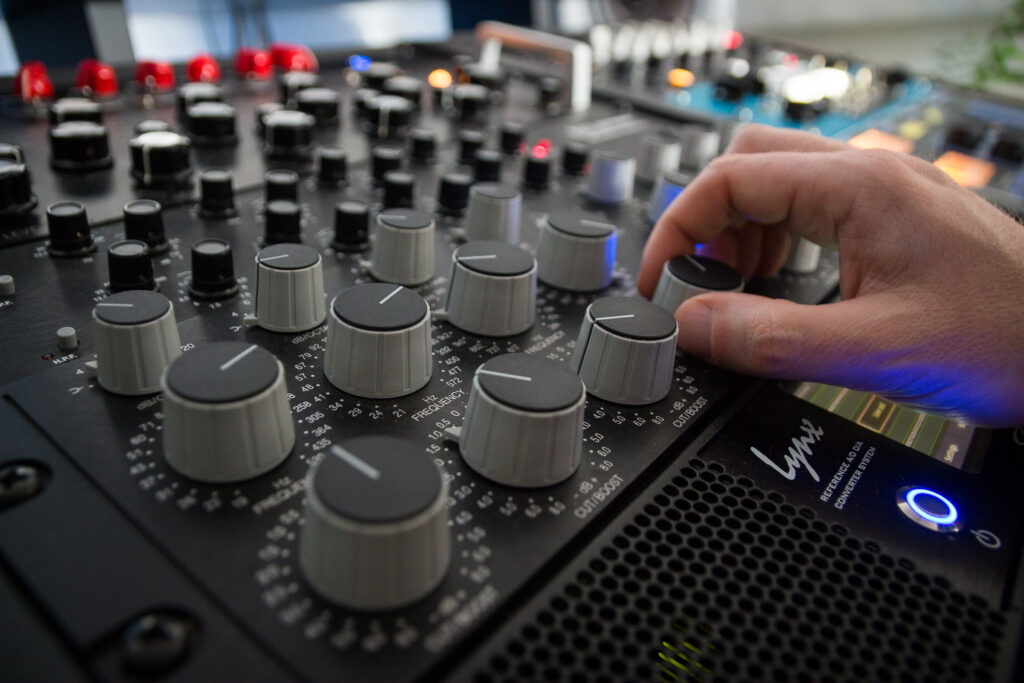Analog Mastering: The Art of Polishing Your Music
Analog Mastering. As a musician, you’ve put a lot of hard work into writing, recording, and mixing your music. But before you release it to the world, there’s one more step you need to take: mastering. Mastering is the process of fine-tuning your mix to achieve a polished and cohesive sound that sounds great on any playback system. And while digital mastering has become increasingly popular in recent years, there’s still something special about the warmth and character of analog mastering.
What is Analog Mastering?
Analog mastering is the process of mastering your music using analog hardware equipment, such as compressors and EQs. These pieces of equipment use physical components to shape the sound, rather than digital algorithms. Analog mastering is a time-honored tradition that dates back to the early days of music production and is still widely used today by mastering engineers who value the warmth and character that analog equipment can add to a mix.
How Does Analog Mastering Differ From Digital Mastering?

The main difference between analog and digital mastering is the way the signal is processed. In digital mastering, the audio signal is converted into a series of ones and zeroes, which are then processed by algorithms to adjust the sound. This can be very precise and accurate, but some argue that it lacks the warmth and character of analog processing.
Analog processing, on the other hand, uses physical components to shape the sound. For example, an analog compressor works by using an optical or electronic circuit to reduce the dynamic range of the audio signal. This can add a pleasing “squish” or “pump” to the sound that is difficult to replicate with digital processing. Similarly, an analog EQ uses physical circuits to boost or cut certain frequencies, which can add warmth and character to the sound.
Another difference between analog and digital mastering is the workflow. In analog mastering, the engineer typically works with the entire mix at once, adjusting levels and processing the sound in real time. This can be a more intuitive and creative process, as the engineer can make adjustments based on how the mix sounds as a whole. In digital mastering, on the other hand, the engineer typically works with a mouse and keyboard, making precise adjustments using software tools on a screen.
Why Choose Analog Mastering?
So why would a musician choose analog mastering over digital mastering? There are several reasons:
- Warmth and Character: As mentioned earlier, analog processing can add a pleasing warmth and character to the sound that is difficult to replicate with digital processing. This can be especially desirable for certain genres of music, such as jazz or classic rock, where a vintage or “old-school” sound is desired.
- Creative Process: Analog mastering can be a more intuitive and creative process, as the engineer can make adjustments based on how the mix sounds as a whole. This can lead to more organic and natural-sounding results.
- Attention to Detail: Analog mastering requires a high level of skill and attention to detail, as the engineer must carefully adjust each piece of hardware to achieve the desired sound. This can result in a more polished and professional-sounding final product.
In conclusion, analog mastering is a time-honored tradition that is still widely used today by mastering engineers who value the warmth and character that analog equipment can add to a mix. While digital mastering has become increasingly popular in recent years, there’s still something special about the sound of analog processing. Whether you choose to master your music using analog or digital techniques, the most important thing is to work with a skilled and experienced engineer who can help you achieve the best possible sound for your music.
To view the range of analog tools available at Steve Kitch Mastering click here.
If you would like any further information then please don’t hesitate to get in contact.
